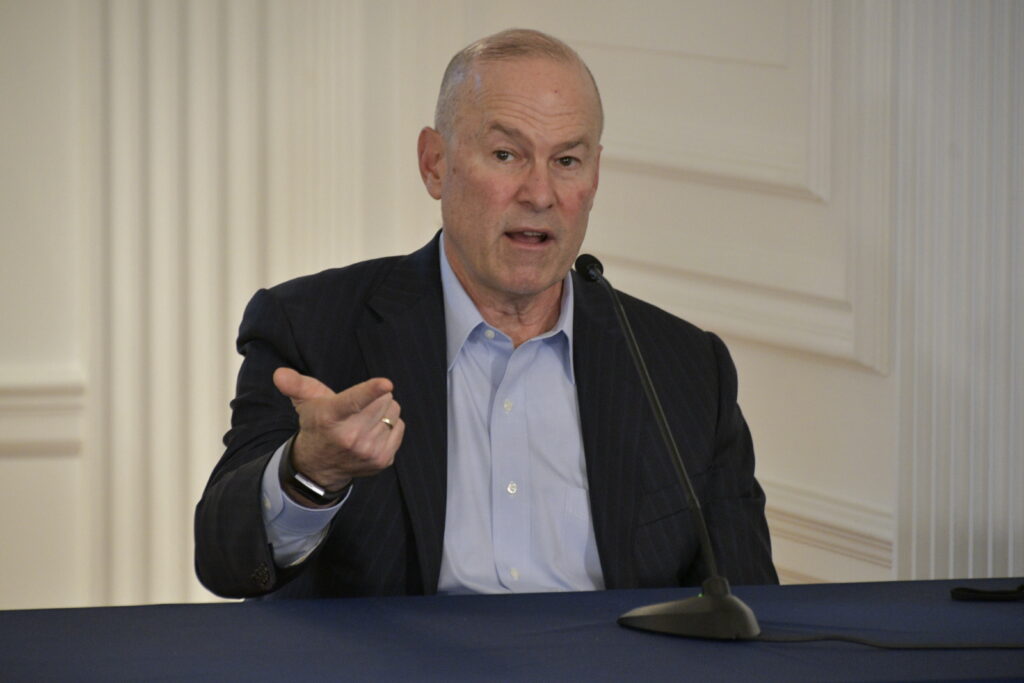MORGANTOWN – COVID-19 Czar Clay Marsh testified before a Congressional subcommittee Tuesday on vaccine distribution issues in West Virginia and across the nation.
He was one of five state health officials to answer questions – during a virtual meeting – from member of the U.S. House Energy & Commerce Subcommittee on Oversight and Investigations. The other four were from Illinois, Michigan, Louisiana and Colorado.

Subcommittee chair Diana DeGette, D-Colo., said two significant problems in the national vaccine rollout are a lack of supply and a federal lack of transparency about how many vaccines are coming and when. And while the majority of citizens want vaccines, many still have reservations about them.
Marsh was invited and introduced by Rep. David McKinley, R-W.Va. and a subcommittee member.
In opening comments before questioning began, Marsh summarized how West Virginia formed its strategy, and it will sound familiar to those who’ve watched the regular COVID briefings from the governor’s office.
“Ultimately it is culture that plays the most important role in outcome,” Marsh said. West Virginia chose collaboration over the polar approaches of doing nothing or doing everything by force.
The leadership, he said, formed a team of teams that would be agile, able to change and able to learn. Team leaders would be responsible for sectors but cooperate so everyone worked toward a single goal.
They targeted the elderly and most vulnerable and partnered with the many private pharmacies across the state to target nursing homes, he said, And the statewide preregistration system is up and running.
“We all shine brightest in the service to others, and the only way we’re going to succeed is together,” he said.
Marsh and Colorado Health Director Jill H. Ryan shared similar comments on the supply issue. Marsh said West Virginia gets about 23,000 doses per week but has the capacity to administer 125,000. Ryan said her state receives 80,000 weekly but can put 300,000 in arms and is ramping up to 400,000.
The hearing moved into questioning and Marsh fielded one on his thoughts for more or better federal collaboration.
Marsh said the states need opportunities to share best practices, and what has worked and what hasn’t, so others can learn. What’s lacking is an integrated national portal for leaders from every state to freely exchange information.
He also fielded a question on how states track, or sometimes fail to track their vaccine doses. Marsh said all West Virginia doses are tracked via GPS. They go out to five hubs around the state for distribution, and if they aren’t put into an arm within seven days they’re returned.
Apart from supply and information transparency issues, one member asked Marsh, what else needs to change?
Marsh talked about the data that shows that even the first dose of the two-dose Pfizer and Moderna vaccines offer protection, reduce hospitalizations and save lives. So the strategy should to ensure that second doses are available, but to get as many first doses into citizens as possible.
Tweet David Beard@dbeardtdp Email dbeard@dominionpost.com




